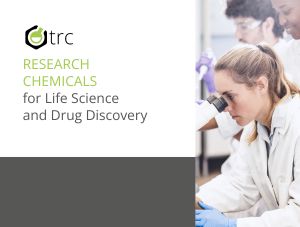World Parkinson’s Day: Join the Movement to End Parkinson’s disease!
The world’s fastest growing neurological disorder, Parkinson’s disease currently affects 10 million people globally, with cases expected to double by 2050. To mark World Parkinson's Day on April 11, LGC pays tribute to the dedication and ingenuity of scientists who work tirelessly to understand the molecular mechanisms of this disease, and to develop and manufacture life-changing treatments.
Parkinson’s disease affects the brain’s ability to produce dopamine – the chemical that helps us control movement. The disease is characterised by the accumulation and misfolding of proteins that form toxic clumps and trigger the death of specific neuronal populations in the central nervous system. Parkinson’s is a progressive disease - meaning that symptoms appear gradually and slowly get worse - as the brain becomes increasingly damaged over time. The two main groups of symptoms are ‘motor’ symptoms affecting movement – such as shaking, muscle rigidity and slowness of movement – and ‘non-motor’ symptoms like pain, anxiety, and depression. The causes are likely to be a combination of genetic and environmental factors, although the specific genes and pollutants involved remain incompletely defined.
Advancements in genomics and structure-based drug design have opened the door to promising avenues for treatment, with strategies such as gene editing and cell therapies gaining attention for reducing the load of toxic protein aggregates in disease models. However, these approaches are expensive and challenging to deliver into patients’ nervous systems. Small molecule drugs including rationally designed compounds, natural products, and repurposed pharmaceuticals are also the focus of intensive research activity because of their potential to combat the disease in different ways - such as by dissipating toxic protein clumps, targeting neuroinflammation, and protecting neurons.

Figure adapted with Biorender.com, from Pérez-Arancibia et al. (2023). ‘The search for Parkinson's and Huntington's disease therapeutics’. Frontiers in Neuroscience ’16:1084493
LGC is proud to support the Parkinson’s research and development community by providing essential research chemicals and chemical manufacturing controls. Our extensive TRC portfolio of APIs, bioactive molecules and research chemicals has been cited in nearly 2,000 Parkinson's research articles - covering diverse topics ranging from the characterisation of drug targets LRRK2 and CLIC2, to the development of high throughput screening methods, and the evaluation of investigational treatments such as curcumin.
Products from LGC Standards’ TRC and Dr Ehrenstorfer ranges have also been instrumental in studying the effects of pollutants such as pesticides, microplastics and food contaminants on disease incidence.
Meanwhile, our Mikromol brand provides ISO 17025-accredited API, impurity, and excipient reference materials supporting the manufacture of Parkinson’s disease therapies - such as the dopamine agonist Pramipexole, and the monoamine oxidase (MAO) inhibitor Rasagiline.
Despite significant preclinical progress, the translation of these advancements into treatments capable of preventing, curing, or significantly delaying the progression of Parkinson’s disease is still lacking - underlining the need for further research and development efforts. We therefore pay tribute to the tireless work of charity activists raising much needed funds for groundbreaking Parkinson’s research globally, and urge you to Join the Movement to End Parkinson's disease today!
|
Author Joe Lackey – Technical Specialist
Joe holds a PhD in Molecular Physiology from the University of Dundee, as part of which he worked in early drug discovery - investigating the role of the PI-3 kinase signalling pathway in tumour growth. He has worked as an LGC technical specialist for seven years, enabling him to explore his significant interests in personalised medicine, cancer biology, and the journey to the clinic.
|
Get more from LGC Standards



